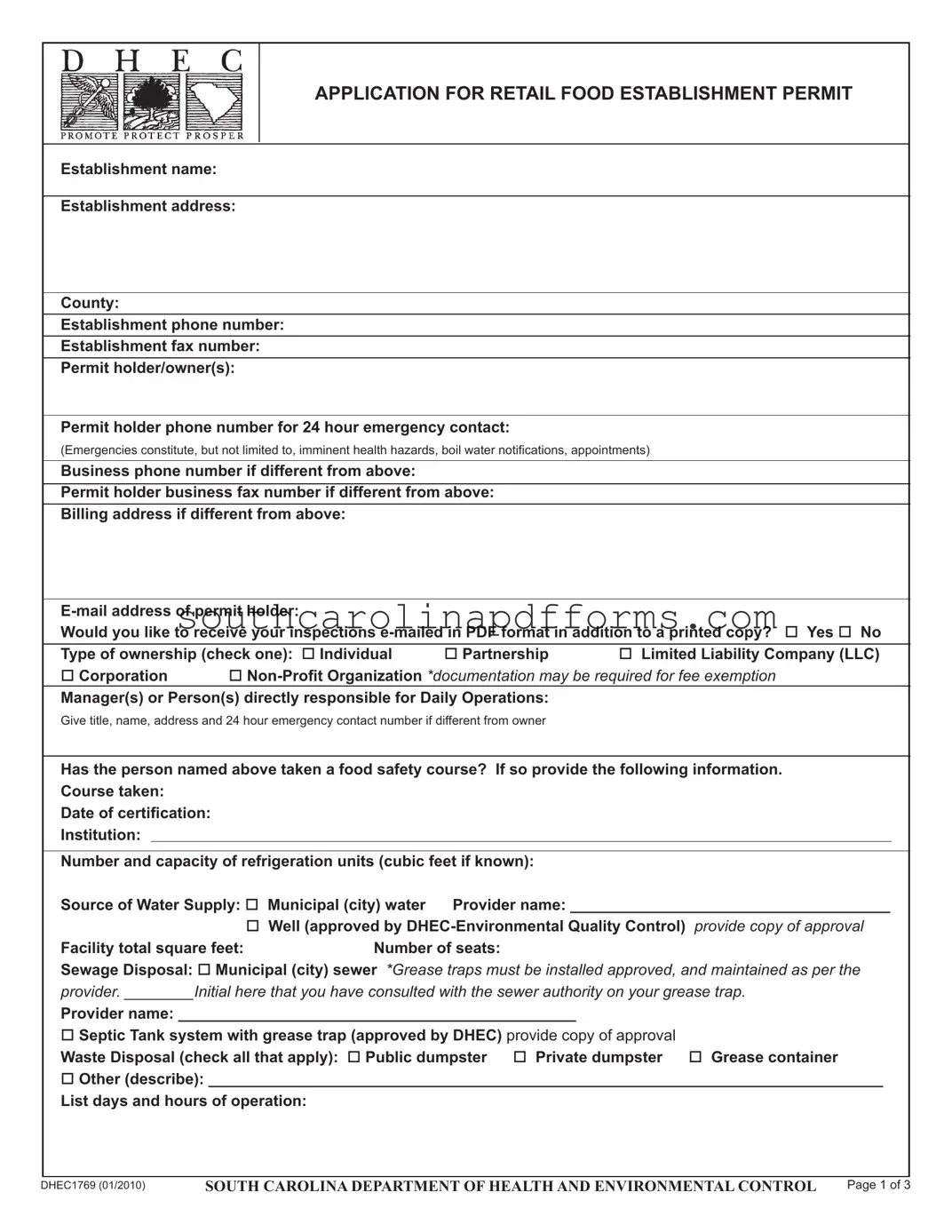The DHEC1769 form serves as a crucial application for obtaining a retail food establishment permit in South Carolina. This document collects essential information about the establishment, including its name, address, and contact details. It also requires the identification of the permit holder and the individuals responsible for daily operations, ensuring that there is a clear line of accountability. Applicants must specify the type of ownership, whether it be individual, partnership, corporation, or non-profit organization, as this can influence the permit process. The form delves into operational details, asking about the establishment's square footage, seating capacity, and the sources of water and sewage disposal. Furthermore, it outlines the types of food preparation involved, whether it includes potentially hazardous foods or special processes that may necessitate additional plans like HACCP. The form even addresses outdoor cooking activities, which must comply with specific regulations. By gathering this comprehensive information, the DHEC1769 form plays a vital role in ensuring that retail food establishments meet health and safety standards, ultimately protecting public health and welfare.
